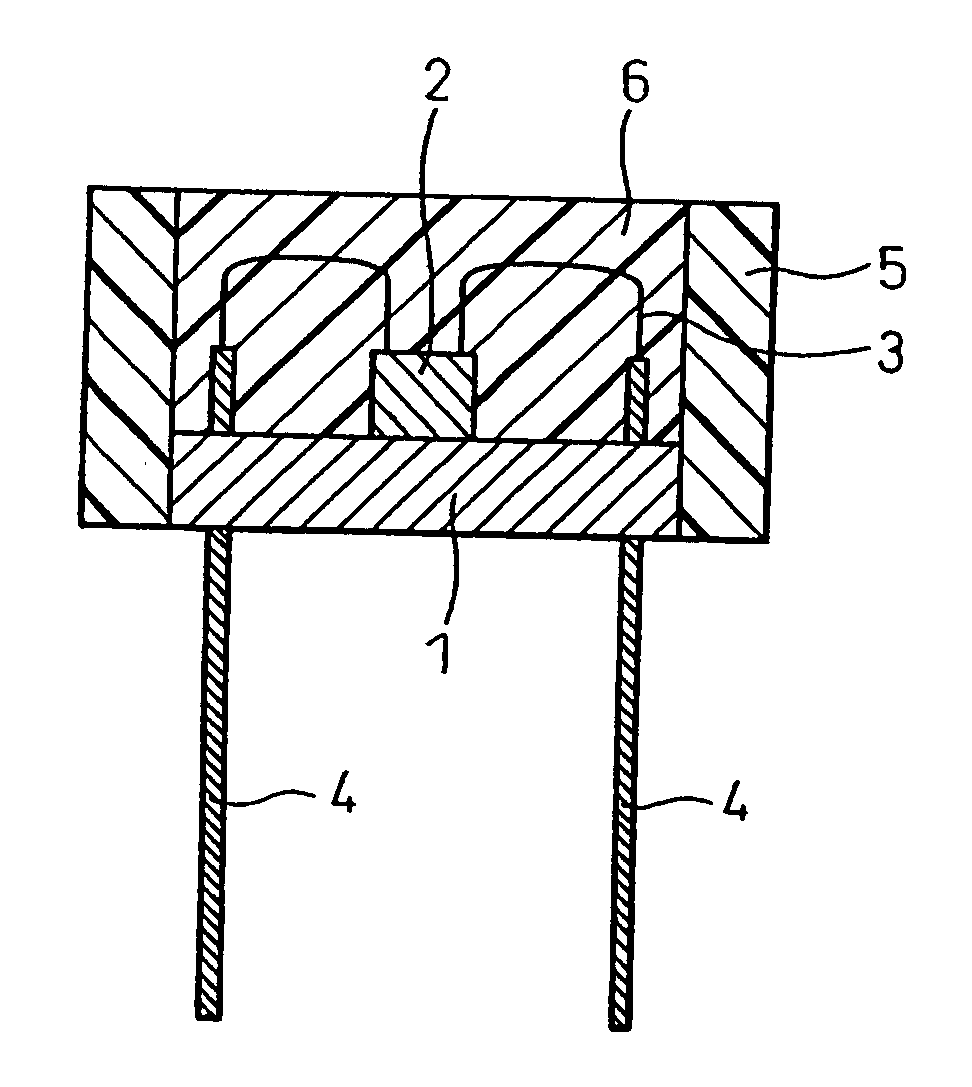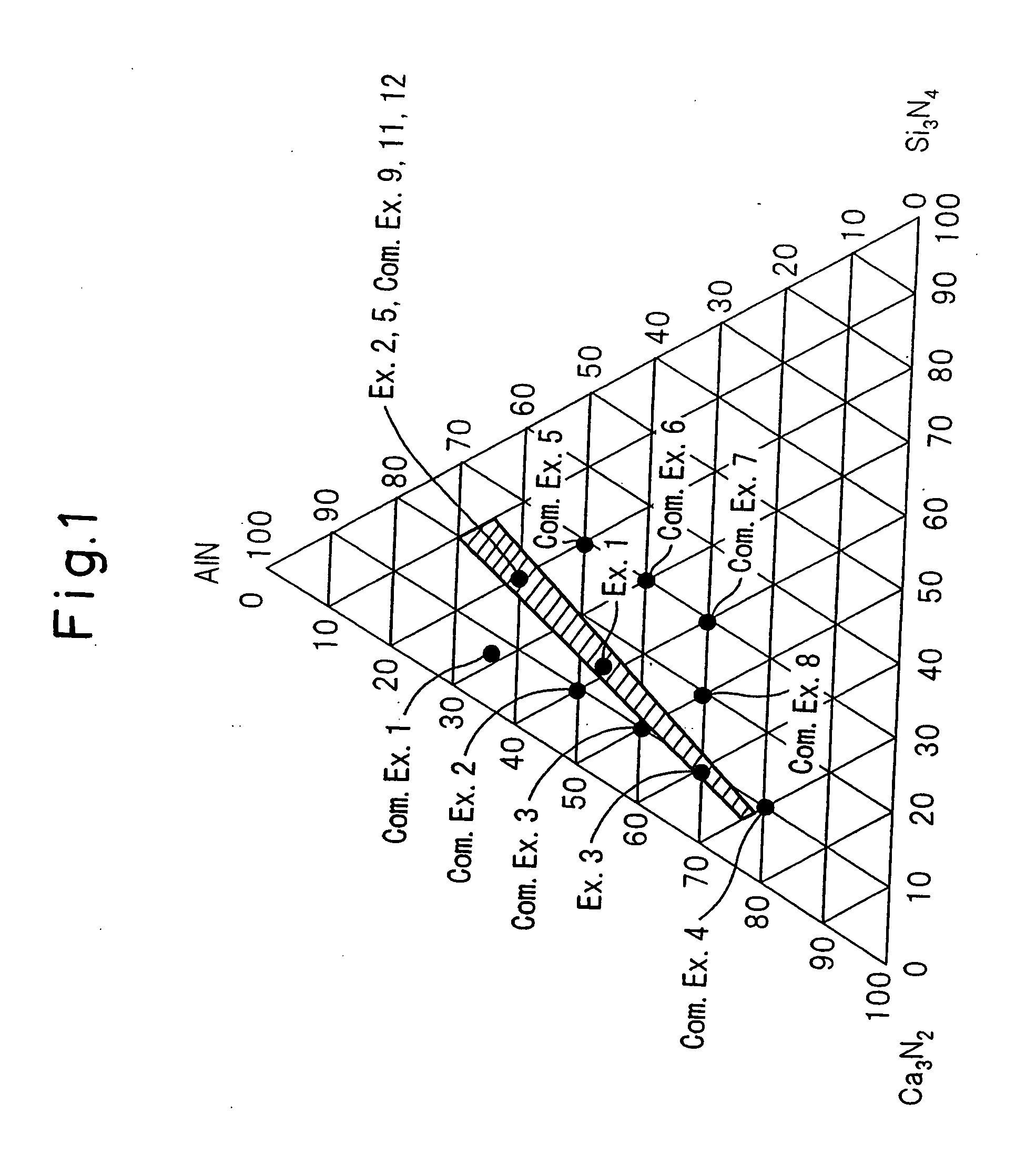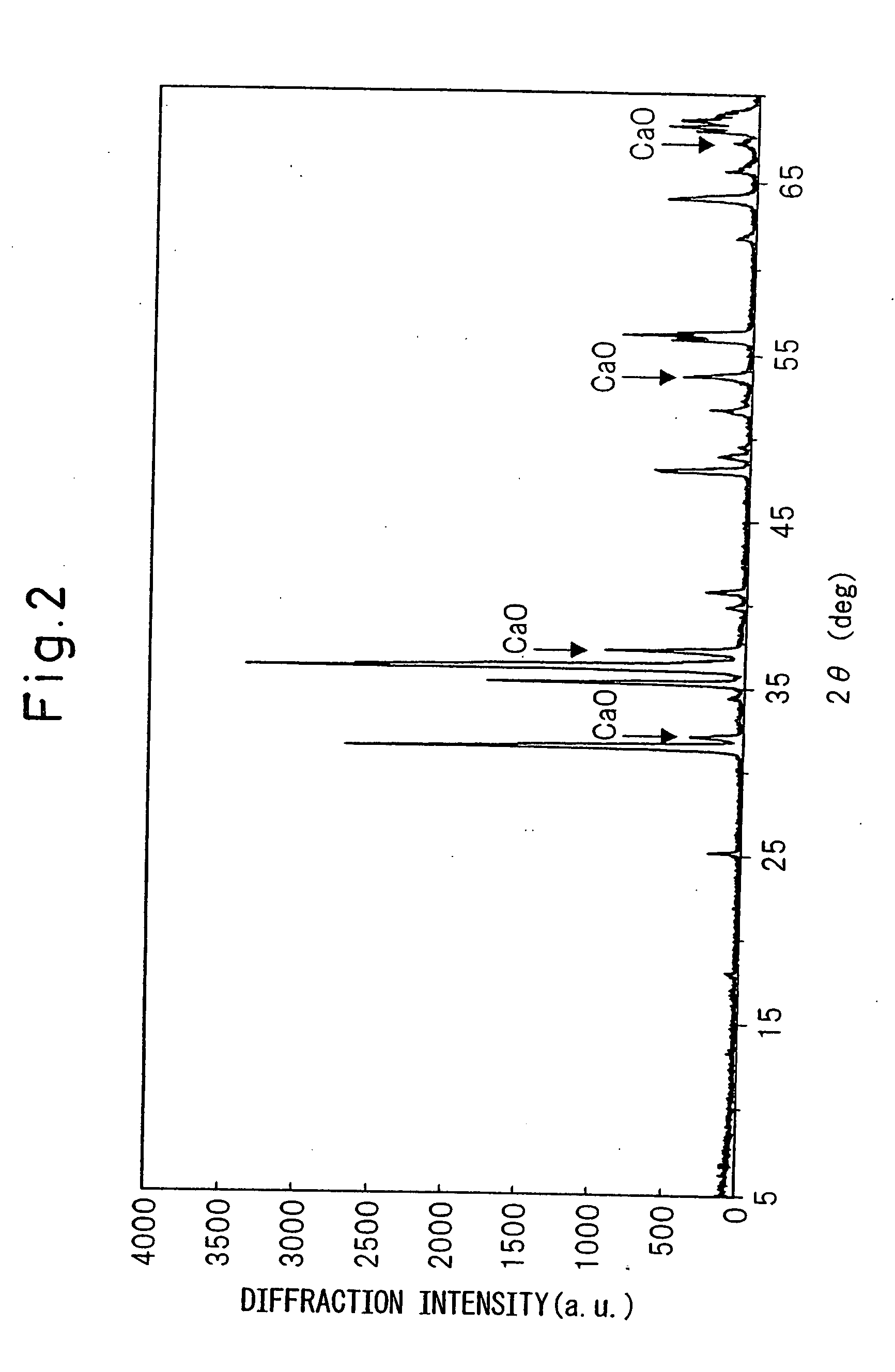Red Nitride Phosphor and Production Method Thereof
a technology of red nitride phosphor and red nitride, which is applied in the direction of discharge tube/lamp details, discharge tube luminescent screens, discharge tubes/lamp details, etc., can solve the problem of very small number of reports on a phosphor of absorbing blue light and emitting red photoluminescen
- Summary
- Abstract
- Description
- Claims
- Application Information
AI Technical Summary
Benefits of technology
Problems solved by technology
Method used
Image
Examples
example 1
[0106]For obtaining EuN powder as the raw material, direct nitridation of metallic europium was performed. In a nitrogen box, metallic europium (produced by Soekawa Chemical Co., Ltd., 99.9%, massive) was filed to obtain fine particulate metallic europium of 350 μm or less. The obtained fine particulate metallic europium was charged into a carbon crucible and in a nitrogen atmosphere, the crucible was kept at 500° C. for 15 minutes, then kept at 750° C. for 2 hours, further kept at 900° C. for 1 hour, and cooled in the furnace. After cooling, the crucible was placed in a nitrogen box and EuN was taken out in a nitrogen atmosphere. This powder was pulverized to a powder of 150 micron or less and used as the raw material.
[0107]Subsequently, for obtaining Ca3N2 powder, direct nitridation of metallic calcium was performed. In a nitrogen box, metallic calcium (produced by Wako Pure Chemical Industries, Ltd., 99.0%, granular) was charged into a carbon crucible and in a nitrogen atmosphere...
example 2
[0119]The same raw materials as in Example 1 were prepared, and these raw materials were weighed in a nitrogen box at a ratio of Ca3N2:AlN:Si3N4=20.0:60.0:20.0 (mol %), and 1.5 parts by weight as Eu of EuN was further added to 100 parts by weight of the raw materials obtained at the above-described ratio. The resulting mixture was fired by the same method as in Example 1 to obtain a red phosphor. FIG. 8 shows the X-ray diffraction pattern of this powder. Similarly to Example 1, FIG. 9 shows an enlarged view of the portion where 20 is from 30° to 42°. Here, for the purpose of comparison, this red phosphor is compared with Comparative Example 9 (orthorhombic CaAlSiN3) and Example 1 (monoclinic CaAlSiN3). From the comparison, the red phosphor of this Example is found to be a crystal analogous to that of Example 1 and be a monoclinic system. FIG. 10 similarly shows a comparison in the portion where 20 is from 45° to 70°. Also in this portion, the crystal constituting the phosphor of thi...
example 3
[0121]The same raw materials as in Example 1 were prepared, and these raw materials were weighed in a nitrogen box at a ratio of Ca3N2:AlN:Si3N4=60.0:30.0:10.0 (mol %), and 1.5 parts by weight as Eu of EuN was further added to 100 parts by weight of the raw materials obtained at the above-described ratio. The resulting mixture was fired by the same method as in Example 1 to obtain a red phosphor. FIG. 11 shows the X-ray diffraction pattern of this powder. Remaining of CaO is significant, but the X-ray diffraction pattern excluding CaO is the same as that of Example 1 and this red phosphor is found to be monoclinic CaAlSiN3. Since this red phosphor was containing CaO, acid cleaning was performed in the same manner as in Example 1 to remove CaO. The photoluminescence spectrum and excitation spectrum were measured by the same method as in Example 1, as a result, the photoluminescence spectrum and excitation spectrum were almost the same as those in Example 1. Furthermore, the internal ...
PUM
| Property | Measurement | Unit |
|---|---|---|
| particle diameter | aaaaa | aaaaa |
| 2θ | aaaaa | aaaaa |
| wavelength | aaaaa | aaaaa |
Abstract
Description
Claims
Application Information
 Login to View More
Login to View More - R&D
- Intellectual Property
- Life Sciences
- Materials
- Tech Scout
- Unparalleled Data Quality
- Higher Quality Content
- 60% Fewer Hallucinations
Browse by: Latest US Patents, China's latest patents, Technical Efficacy Thesaurus, Application Domain, Technology Topic, Popular Technical Reports.
© 2025 PatSnap. All rights reserved.Legal|Privacy policy|Modern Slavery Act Transparency Statement|Sitemap|About US| Contact US: help@patsnap.com



